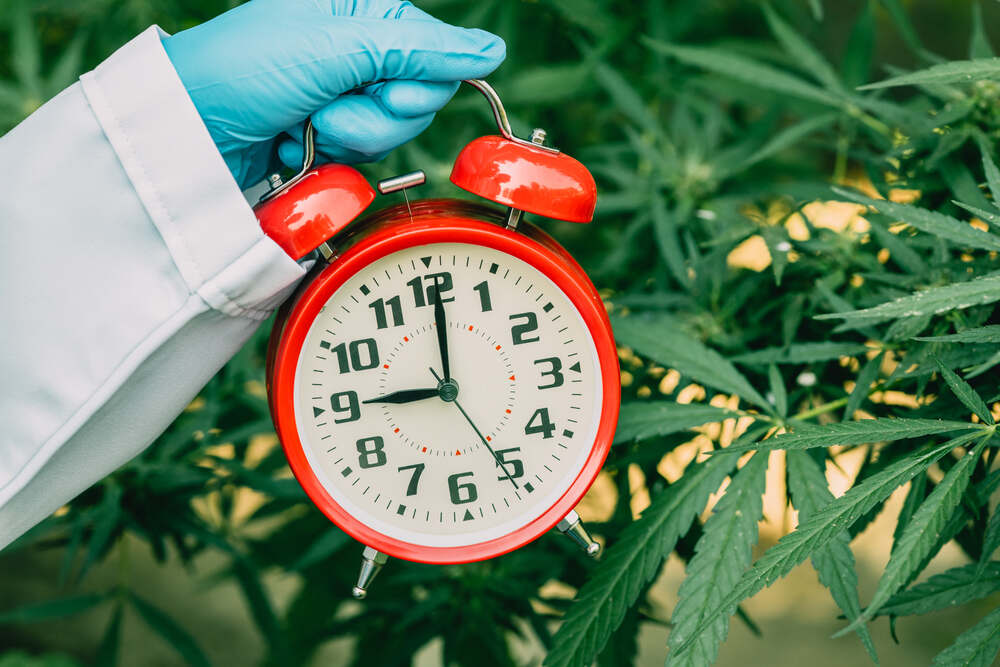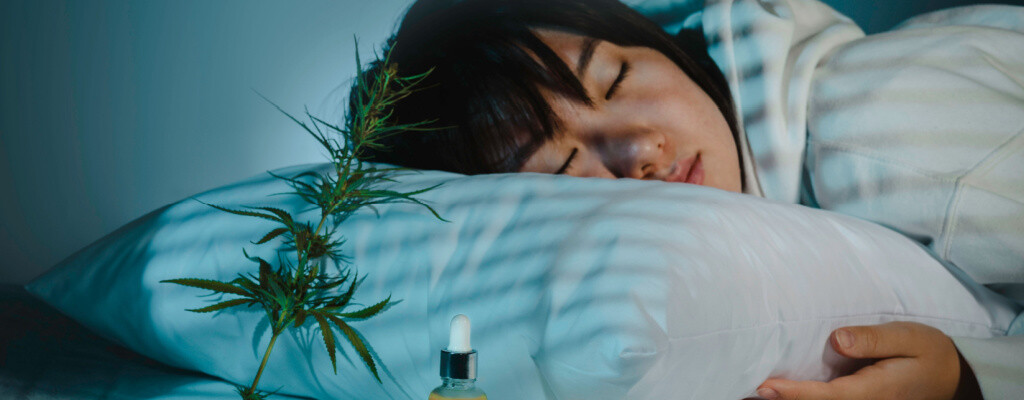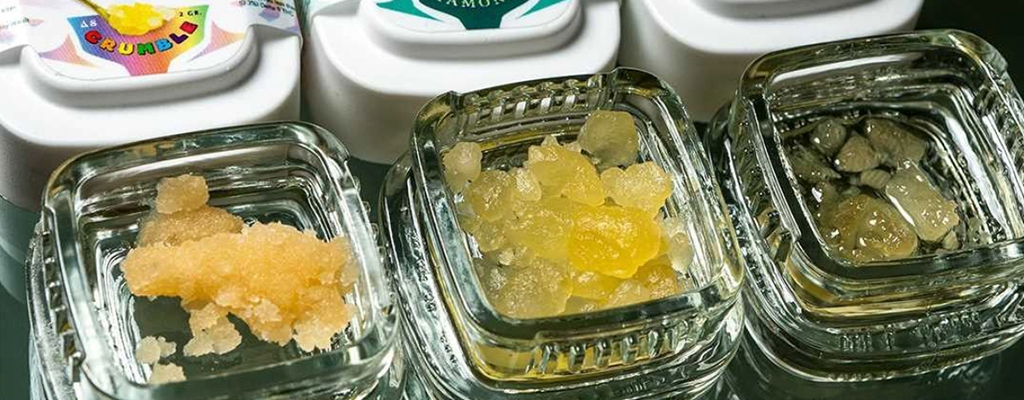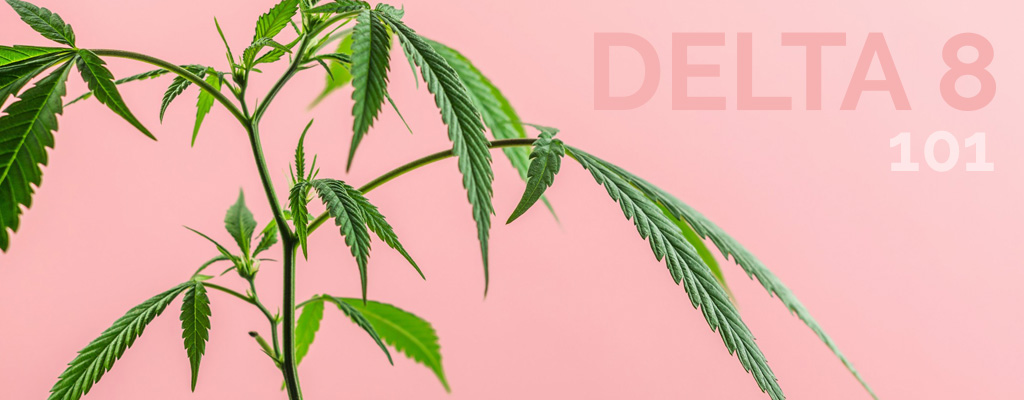CBD stands out among the many chemicals found in cannabis and hemp plants because of its unique effects. Unlike the majority of those other chemicals, CBD is not psychoactive. It doesn’t cause a high, with effects like an elevated mood or enhanced sense of creativity.
So, why do people use CBD? It’s thought to have a variety of practical and beneficial effects. These include potentially relieving inflammation, having a calming effect, and promoting better sleep.
So, does CBD make you tired? Can it help you get better sleep? Let’s take a closer look.
Understanding What CBD is, How it Works, and Why it’s Used
CBD is a common abbreviation for cannabidiol. No matter what you call it, this is a chemical found in both cannabis and hemp plants. CBD falls under the more specific cannabinoid category because it:
- Interacts with the body’s natural endocannabinoid system.
- Has specific effects.
CBD, unlike many other cannabinoids, isn’t commonly used recreationally. Because it doesn’t cause a high, it’s not a popular option for someone looking to alter their perceptions or boost their mood.
Instead, CBD is thought to have more practical effects. The following benefits of CBD, as shared in a medically reviewed article from Forbes, are being researched.
These benefits have shown some degree of positive or encouraging results in research thus far. However, except they have not yet been conclusively proven or disproven. CBD may have positive results in addressing:
- Inflammation.
- Anxiety.
- Chronic pain.
- Sleep quality issues such as insomnia.
CBD has some side effects, such as dry mouth and nausea. However, they are often recognized by users as relatively minor. It is not thought to be addictive or habit-forming, Harvard Health Publishing explains.

Legality of CBD
CBD can be derived from both hemp and cannabis plants. CBD from hemp is legal federally thanks to the 2018 Farm Bill. This piece of legislation legalized commercial hemp production as long as the plants contain no more than 0.3% Delta 9 THC by dry weight.
Some states and municipalities have stricter laws and regulations related to CBD. Always look into the local and state laws that affect you before making a purchase.
CBD extracted from cannabis plants is also legal in many states. However, this type of CBD cannot be sold across state lines because cannabis is illegal at the federal level.
Does CBD Make You Sleepy?
CBD does not appear to have a direct relationship to inducing sleep in the same way that over-the-counter or prescription sleep aids do. Does CBD make you drowsy? It doesn’t appear to, although more research is required for a definitive answer.
The same is true for specific CBD products. If you’re wondering “Does CBD oil make you sleepy?” or “Does CBD oil make you tired?”, the best available answer is that it’s not likely to.
While CBD doesn’t directly make you tired or sleepy, it may have some important and beneficial effects related to sleep.
CBD is thought to help address anxiety, inflammation, and chronic pain. An observational study on CBD users published in the peer-reviewed Journal of Cannabis Research shares more details.
These issues are all obstacles to a full and restful night’s sleep. Addressing them may lead to improved sleep.
In other words, CBD isn’t recognized as a sleep aid. However, it appears to address common issues that can interfere with sleep length and quality. By reducing the severity of pain, anxiety, and inflammation, CBD may make it easier to both fall asleep and stay asleep.
How Can You Use CBD to Promote Better Sleep?
There are a few common ways to use CBD:
- Vaping or, less commonly, smoking CBD delivers more immediate effects. It also wears off more quickly than consuming CBD.
- Eating CBD edibles and consuming CBD oil causes your body to digest CBD before it passes into the bloodstream. This causes a longer onset of effects (often 30-90 minutes) and a longer duration (often several hours) as well.
- CBD creams, balms, and similar products are applied topically, generally to an area where pain or inflammation is present. These products may be less effective in encouraging sleep unless the specific area treated is a major obstacle to good sleep.
Based on the available information, our recommendation is to use CBD edibles or oils to address issues that interfere with sleep. These CBD products tend to have the longest-lasting effects, which can be valuable for staying asleep.
First, try taking CBD oil or edibles about 90 minutes before you plan to fall asleep. If you notice the effects kicking in sooner (or later), make note of that. Then adjust the timing of the following dose so the effects kick in close to your bedtime.
What about dosing? Resist the temptation to take a very large dose of CBD, especially if you haven’t tried to use it for sleep in the past. Start with half of or the full dose recommended on the package of the CBD product you use. Then, make a note of how that dose affected you.
CBD is not addictive and generally well-tolerated, so increasing your dose to 1.5 or 2 times what’s recommended isn’t often a major concern. What’s more important is finding the dose that works for you in terms of falling and staying asleep, and making adjustments as needed.
Finding High-quality CBD Products for Sleep
There are plenty of CBD products on the market. How can you make sure you find consistent, high-quality, and dependable options?
Delta 8 Resellers offers a wide range of CBD products from leading brands in the industry. Whenever available, we share the results of independent lab testing on our products. That means you can check out their quality, purity, and contents for yourself.
We offer a curated collection of CBD products designed to support better sleep, too. That makes it easy to find edibles, oils, and other options intended to help you fall asleep and stay asleep.



